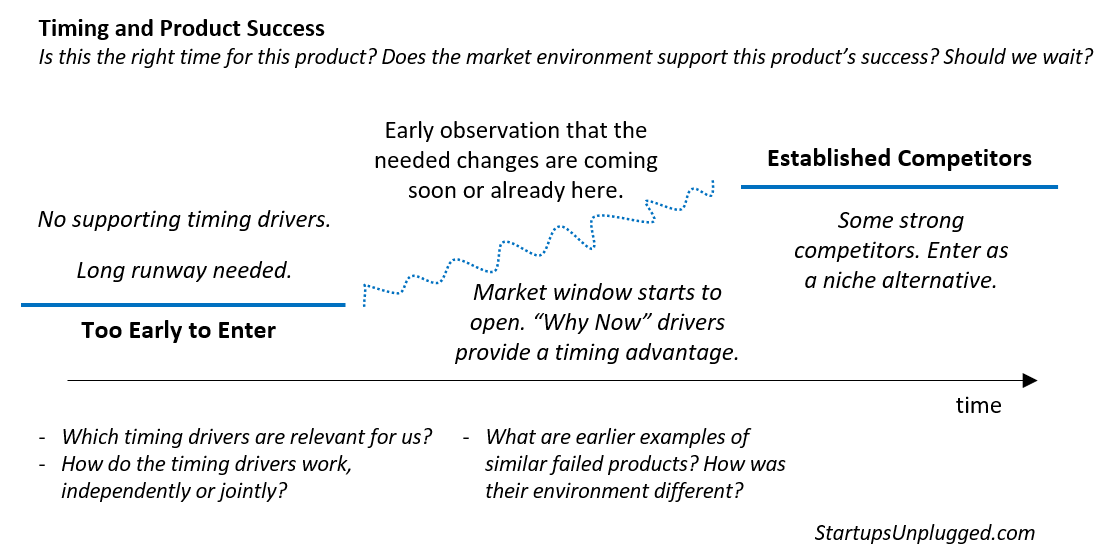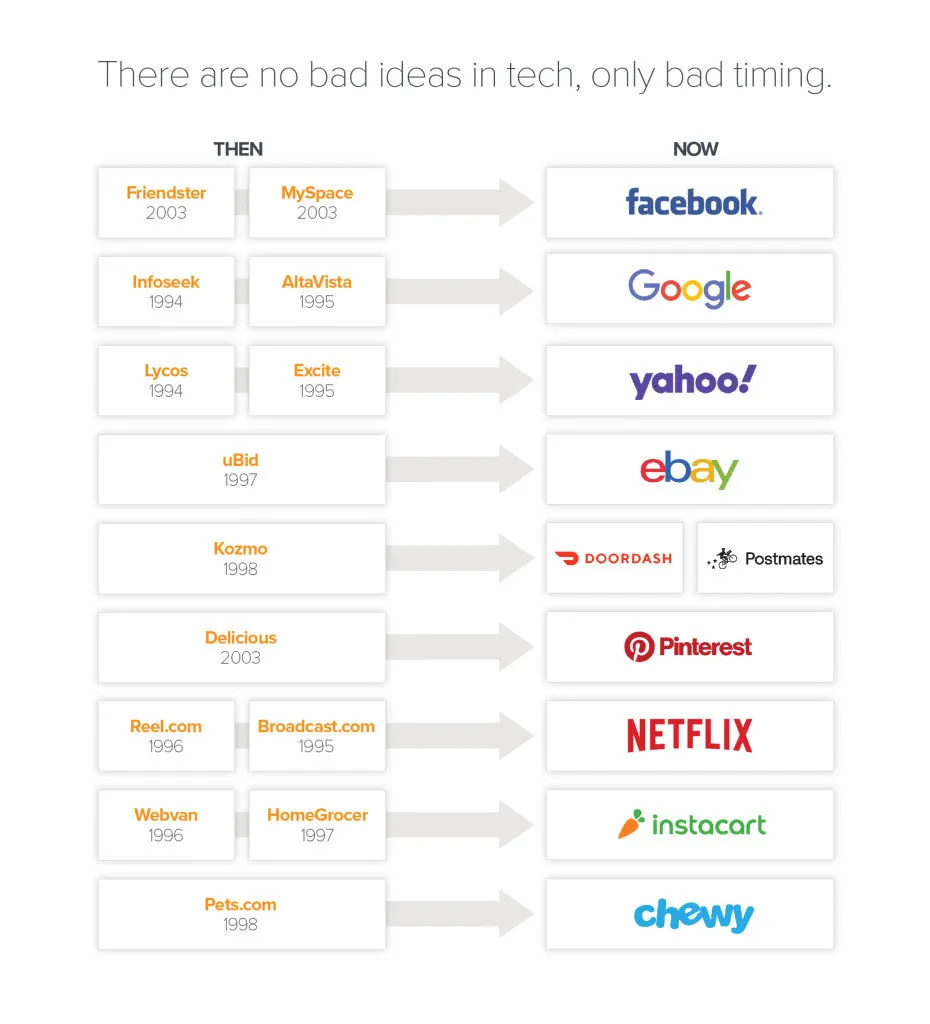and the distribution of digital products.
DM Television
Timing is Important for Startups and Product Launches
\ In my current and previous startups, I’ve experienced firsthand the profound impact of timing, both good and poor, and how shifting conditions can dramatically change a business’s trajectory. I’ve seen how timing can influence our outcomes and learned what we did to mitigate its effects.
\ I’ll share examples from my previous companies: my current startup, Withluna.ai, was launched at the beginning of 2023 amid widespread budget cuts and downsizing across tech startups and companies. In 2011, Namshi.com (a Rocket Internet venture) was one of the first large-scale e-commerce platforms in the GCC countries, an emerging market with limited experience in online shopping.
\ To founders and product leaders: while the product, team, and market are all crucial, timing often has an outsized impact on whether a startup succeeds or fails. Poor timing affects sales and traction, shortens runway, and, if unaddressed, can break even the strongest startups.
\ Because timing is often overlooked, I wanted to share my experience and perspective on this critical topic.
Why does startup and product timing matter?In his well-known TED talk Bill Gross identified timing as the #1 factor impacting startup success, surpassing team and execution. Similarly, Marc Andreessen has said that the right startup idea will eventually succeed, but it’s a “massive question of timing”: a16z on timing.
\ Startup founders can identify proxies for assessing timing, such as:
- Market readiness: is the market ready for your product? At Namshi’s inception, many users called to ask about our physical shop location or how to shop online, indicating unfamiliarity with e-commerce.
- User behaviour and trends: these can create unique timing opportunities. For example, the shift to remote work during COVID-19 created perfect conditions for Zoom’s growth.
- New regulations: regulatory changes can either enable opportunities or present significant obstacles. Understanding these shifts is essential to timing strategy.
\ In their article “Why startup timing is everything”, NfX introduced the “Critical Mass Theory of Startups”, which suggests a tipping point where a product or market undergoes rapid transformation. This critical mass is reached when three minimum preconditions align:
Economic impetus
Enabling technology
Cultural acceptance
\
This framework helps founders visualize the timing landscape:
\ Countless startups have had similar ideas, but the when, the timing of their launch, played a decisive role in their success or failure.
- Start small and test market readiness: launch an MVP or pilot to gauge interest without overcommitting. Try to win early paying customers, who are a stronger indication of demand than a large volume of non-committed feedback.
- Dropbox famously launched with an MVP video that attracted 70,000 signups, building the confidence to move forward
\
- Focus on early adopters first: target a niche audience likely to embrace your product early. As Peter Thiel puts it, “In order for you to succeed in a competitive environment, you need to do something that others cannot. You need to be 10x better or solving a unique problem which means starting in a very small market.”
- Slack launched for tech teams first, refining its value before expanding to a broader market.
\
- Be ready to pivot or persevere: if timing feels off, adjust based on feedback or refine your product until the market aligns.
- At Namshi, we introduced a “cash on delivery” option to support first-time online shoppers, which ended up being used by more than 75% of our users.
\
- Stay updated on trends and external shifts: monitor market trends, regulations, and user behavior to adapt as needed.
- Shopify initially launched as an online store for snowboarding equipment. However, when they noticed a demand for e-commerce tools, they pivoted to become a platform for other entrepreneurs to set up their online shops
\
- Plan a phased rollout: instead of going all-in at launch, consider a phased rollout that introduces your product gradually, allowing you to build traction and test assumptions as you grow.
- Airbnb first targeted conference attendees in specific cities, then gradually expanded as it gained traction. This helped them gather user feedback and led to product and offering adjustments.
- At Luna, we are following Airbnb’s founder, Brian Chesky’s mantra, “If you launch and no one notices, you can actually just keep launching,”
\ \ Many great startups and products were launched too early to too late, impacting their potential for success and leaving them vulnerable to competitors who got the timing right. Persevering without adapting to poor timing can affect your strategy, team morale, and runway, reinforcing the need for timing awareness and mitigation. Whether you’re a founder or a product leader, considering timing as a core factor will greatly increase the quality and impact of your launches.
- Home
- About Us
- Write For Us / Submit Content
- Advertising And Affiliates
- Feeds And Syndication
- Contact Us
- Login
- Privacy
All Rights Reserved. Copyright , Central Coast Communications, Inc.

